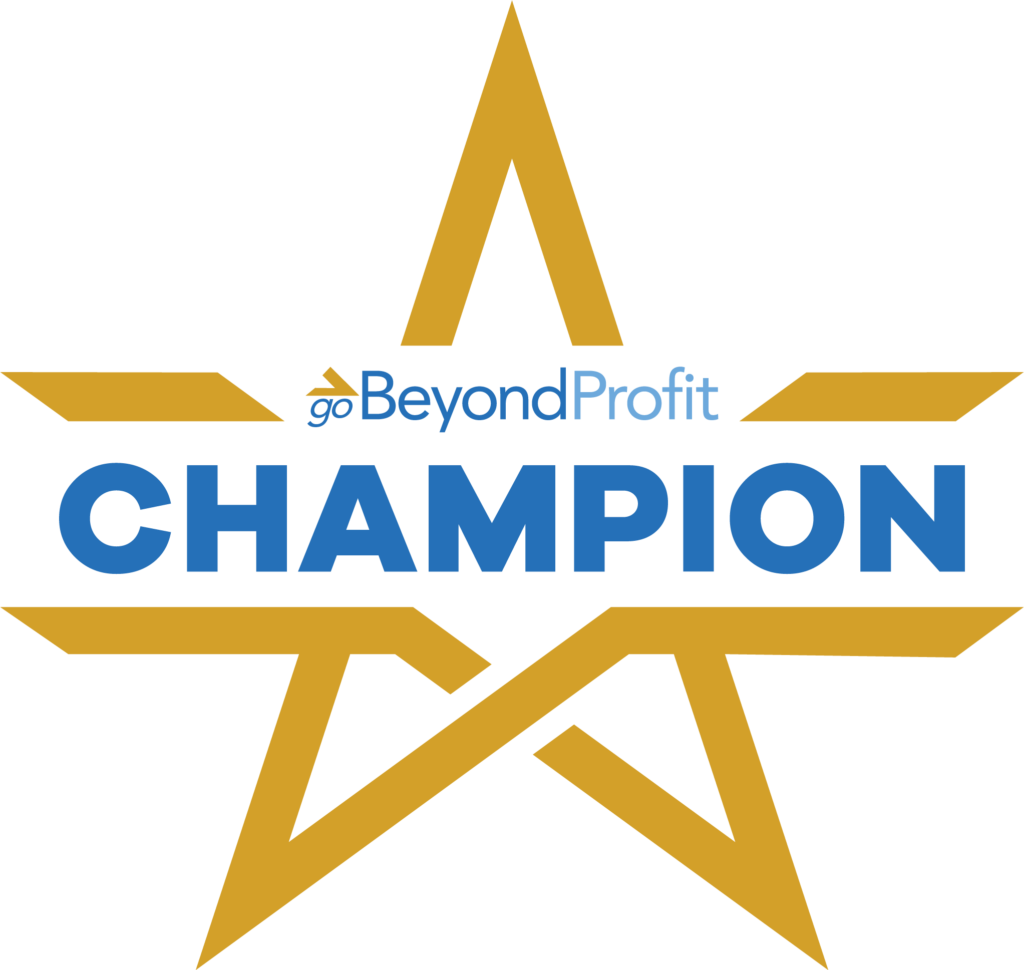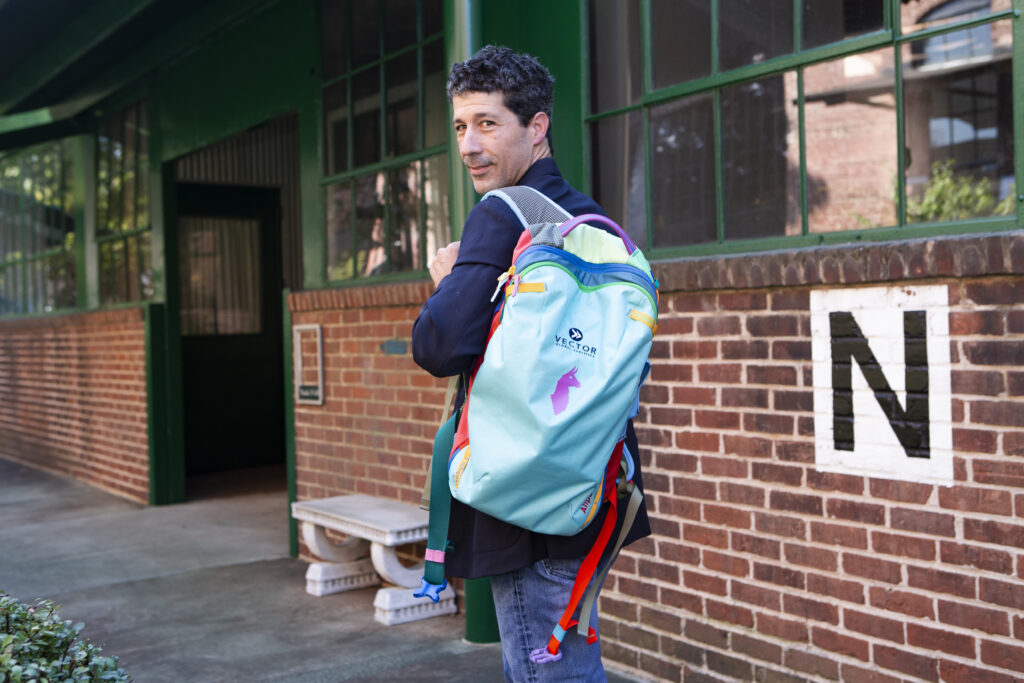Changing the World through Supply Chain
Vector Global Logistics has a clear goal in mind — to change the world through supply chain. Everything from the phone in your hand to the pens you use has some element of logistics involved in it, that is why Vector believes they are uniquely situated to make a positive impact on others.
In our interview with Co-founder and Managing Director, Enrique Alvarez, we explore the case for this purpose-based culture and how it made Vector Global Logistics more resilient throughout a global health and supply chain crisis. We dig into exactly how Vector impacts change on a global scale and explore why the future of business will be driven by purpose.
Vector Global Logistics, and its Co-Founder and Managing Director Enrique Alvarez, were nominated and selected for the goBeyondProfit Champion award by fellow Georgia business leaders for their dedication to leveraging logistics to change the world. Vector’s global network responds to local needs as well as humanitarian disasters, most recently aiding the residents of war-torn Ukraine.

Trend or New Reality?
Our background’s very different from other logistics companies. We came from the consulting world, and we saw an opportunity to be successful by changing the culture and the mindset that we saw in the industry at the time. The biggest factor we wanted to implement was a results mentality. We took the time and space components out of the equation. At the time, a lot of companies measured performance with a nine to five mentality but in logistics, in particular, it just didn’t make much sense and it still doesn’t because 5:00 PM Atlanta time isn’t meaningful for someone in Brazil or China or South Africa. And the second key element for us was to start our company with this idea of logistics with purpose.
I get from some of my peers that the idea of having a purpose-driven business and a very flexible work environment where people really get back their time to manage their own lives could be considered a trend. I think it was a trend before but now, this is just the new status quo. Honestly, I think that if you don’t change quickly and realize what this is all about, I fear that you’ll not be in business for long.
So, I think focusing on purpose and values, going beyond profit and wanting to maximize something other than shareholder profits is the right thing to do. But know that it is also a profitable strategy. We’re not doing it because we’re a charity, we’re a for-profit business, but this is part of our competitive advantage, and it’s also one of our more strategic imperatives as well. The reason why I say that is because purpose is here to stay. So, if you want to have access to a top-notch talent pool and want to hire the best employees out there, this is important to them.
The Case for Purpose-Based Culture
The reason it works is because we talk about culture all the time. Culture, for us, is front and center and literally, we talk about culture all the time, in our staff meetings, in our just regular phone calls, and we use culture. So, for us, culture and our values and our purpose are not something that we say we have. It’s not something that we have a poster somewhere in our office. We use it for hiring. We use it for selecting clients. We use it for selecting suppliers. And so, when we talk about culture, it’s very, very alive in the day-to-day things that we do.
When the pandemic hit, we were ready from a culture standpoint because some of the more practical things that people struggle with had to do with how do we work remotely? How do we completely reimagine what we’re doing so that people can be locked down yet being productive? And so, with some of those things, we didn’t have that rough transition because our culture was based on the idea of flexibility from the very beginning. Our culture has always focused on results-based mentality and the fact that we don’t believe in the nine to five mentality. People can work freely from wherever they are at whatever time they want. That really helped us a lot. It gave us a competitive edge during a time when everyone in our industry, the entire supply chain, was struggling. So that was huge.
The pandemic was a global tragedy and it was a lot of hard work, but we also felt like this we had the right strategy. Even in the hard times, it helped us handle things efficiently and effectively. Culture was our number one competitive advantage before, but after the pandemic, there was zero questions about it. It was very rewarding from that standpoint. I think for the people that went through it with me, we were all really tired after all that hard work, but at the same time, we felt like it wasn’t in vain. This culture, this purpose-driven, results-oriented mentality is paying off. And it was great to see that.
Formula for Changing the World
Well, changing the world to me means making sure that you come to this world and you leave it in a better place than what it was – not only for you, but people that are sharing it with you. This is something that I have learned from my family and my parents and siblings, and I think it’s something that’s become a responsibility. And so, the way we think about it and make “changing the world” real, is really about four things.
#1 Hiring. The first way to change the world is really about hiring more people, just bringing people over and growing this purpose-based company.
#2 Equity and Entrepreneurship Vector is made up of smaller teams and we currently have a plan in place to start giving equity back to the leaders of the teams. I would love to see a couple of these teams – these kind of self-standing companies – become true intrapreneurs, true business owners. That would be a dream to me. And I think that’s a very critical and very impactful way of changing the world.
#3 Partnering with Non Profits The third one is really partnering with nonprofits or purpose-driven organizations out there and helping them streamline their logistics and supply chains. That’s our expertise, that’s what we do, so helping these non profits or other companies that otherwise would not be able to export whatever they’re doing or send their products to other parts of the world, it’s something that we take very seriously.
# 4 Inspiring Other Companies And the last one is just really trying to inspire other companies outside of Vector to adopt a similar purpose-based mentality or similar model and try to see that going beyond profit is really what’s going to not only change the world, but it’s also going to make your company more profitable.
Giving in a Global Context
Vector’s not one huge company. I mean it is, but at the same time, when it comes to day-to-day, we’re a group of smaller self-driven, independent teams. And so we ask each of the teams to determine the kinds of causes they’re passionate about. Instead of imposing something from the top down, we empower our leaders and people that are working with us to define their purpose differently, independently. As a result, we have worked with 34 different organizations in the last year alone. We visit dog shelters, we take part in running certain 5k’s, from homelessness, to foster care, our teams select where we serve. We will continue to encourage people to come to Vector with whatever concerns they have and leverage what we do best to help their causes.

At a more corporate level, if you will, we support and have partnered with three main organizations: One is SERV here in Atlanta and with SERV, for every container we move in the US we are donating 50 meals to children in Kenya. In Mexico, we partnered with an organization called Canica and help children with cancer. And in Chile, we have partnered with an organization called Coanil helping children with special needs.
Supplying Humanitarian Aid for Ukraine
Before the Ukraine war happened, we have been helping around the world very regularly. It’s part of who we are and how we act whether it’s a natural disaster or humanitarian crisis. For instance, in the beginning of the pandemic, when the situation was isolated to Wuhan, China, and no one really knew what was going to happen, we sent containers of PPE from Mexico to China trying to help our agents, friends and partners in China with the emerging pandemic. Before that, we helped victims of the hurricane in Puerto Rico and leveraged logistics to help victims of the Haiti earthquake.

When the Ukraine conflict happened, the first thing we did was just reach out to talk to people. We have agents and good friends in the Ukraine, so we talk to them regularly to find out what they need. We got connected to the consulate here in the US, people in Poland and around the region, as well as in UK and other countries. As we started listening and it was very clear that they needed a lot of supplies.
As of now, we have shipped over 500,000 pounds of supplies, not only to help people inside the Ukraine, but also for the millions of refugees around the Ukraine. We’ve sent everything from hygiene products, flashlights, tents, sleeping bags, etc.
But I think one of the most important things we have done is open the dialogue among different organizations. We are working with competitors, agents, the governments, and clients that have been donating products left and right. Trucking companies have been donating trucking moves for us, the steamship lines have actually jumped in and helped us with some of the rates to send containers to the Ukraine.
Vision for the Future
We are a boutique logistics company with presence in different parts of the world, and what we have set up to do is really continue leveraging logistics to change the world. My vision and hope would be to inspire other companies, some of our suppliers, making sure that they join us on this kind of quest or movement, if you may, so that together with everything we ship, we donate and with everything we do together we are changing the world. That’s the aspiration for the future.
